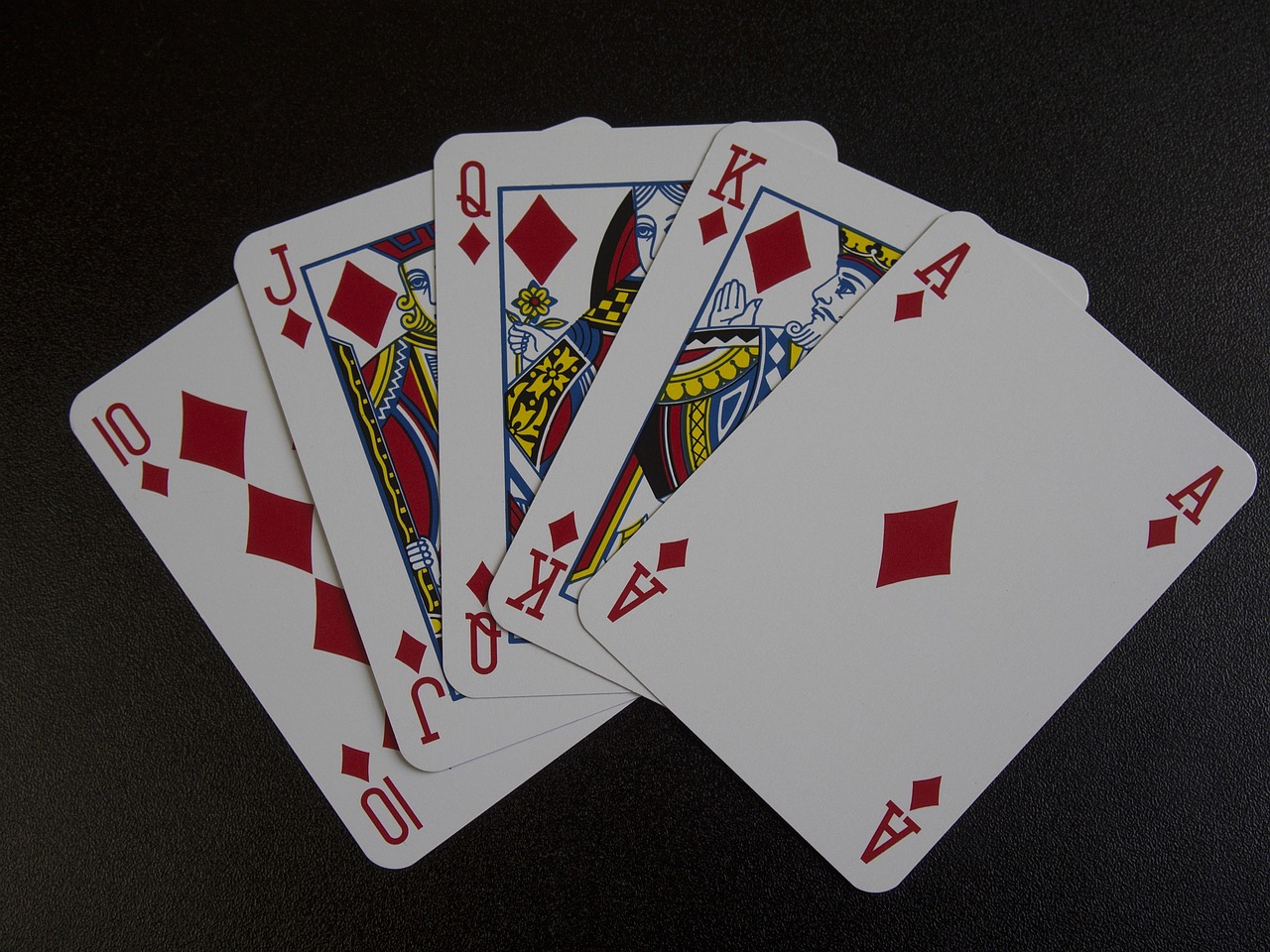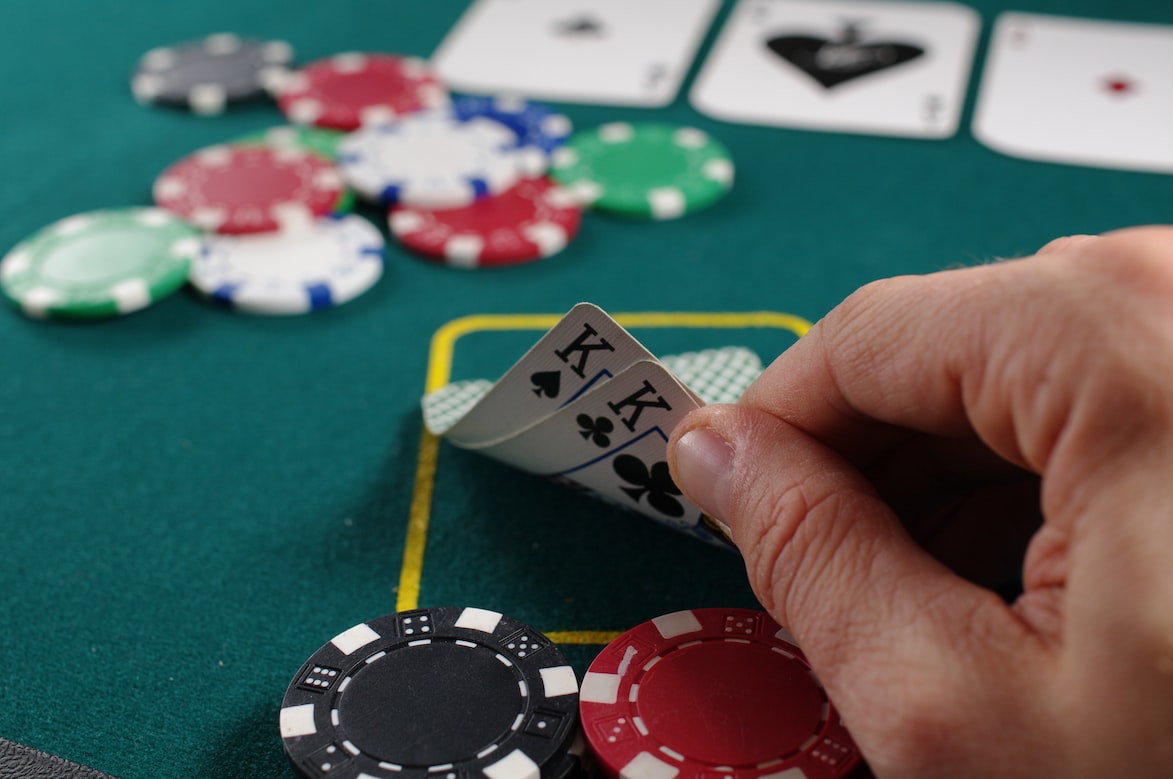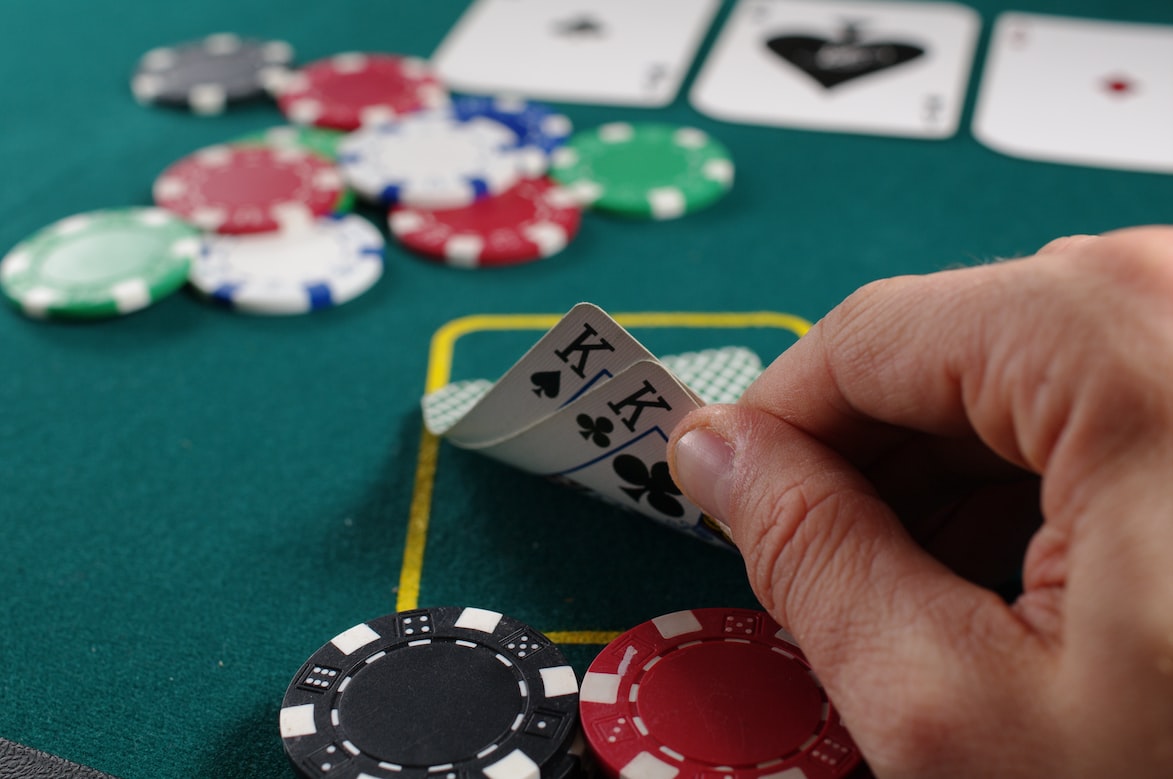The post Avoid these Poker Habits That are Costing You Wins appeared first on Championnat-De-Poker.
]]>In this article, we’ll look at some poker habits you should avoid if you want to be a winning player.

Playing when you’re on tilt.
Playing poker in a bad mood or feeling “off” can lead to costly mistakes. It is because being in a negative mental state can cloud your judgment and make it difficult to think logically and strategically.
When you feel bad, you may be inclined to take unnecessary risks or play overly aggressively to cope with your negative emotions. It is essential to develop good habits around managing tilt to avoid this pitfall. Some strategies include taking breaks between games, going for a walk or jogging to clear your head, engaging in activities that provide catharsis, and even seeking professional help if your feelings of tilt are persistent or intense.
With the right mindset and tools, you can avoid playing poker when you are tilted and protect yourself from making bad decisions that cost you wins.
Calling too much.
Calling too often is a common habit for many poker players and can be extremely costly. This tendency usually arises because players are overconfident or perhaps tempted by the possibility of winning large sums for a small investment.
However, this habit can lead to ruin, as it makes astute opponents aware of your hand and allows them to take advantage of you. Calling too much slows down the pace of play and allows your opponents to build up their chips while you exhaust yours.
To avoid these pitfalls and to protect your poker chips at table, you must learn to control your urge to call too much. You will find it easier to resist the temptation and win more frequently in the long run if you gain enough experience.
Bluffing too much.
Bluffing is a crucial part of the game of poker. It can help you to win hands that might otherwise be unwinnable, and it adds an element of excitement and strategic thinking to each round.

However, too much bluffing can end up hurting your chances of success in the long run.
Excessive bluffing can quickly become a habit that is costly and detrimental to your overall game. Instead of relying too heavily on bluffing, staying grounded in a solid strategy that builds sustainable wins over time is better.
In the end, it’s essential to avoid becoming too caught up in the temptation of bluffing and instead focus on playing smart at all times.
Playing too many hands.
One of the biggest mistakes many players make when playing poker online or live is attempting to play too many hands. It can quickly lead to the habit of trying to make weak hands work by gradually increasing bets and calling down bigger bets when you have little chance of winning.
This behavior can be highly costly in terms of money lost and long-term skill development. Instead of constantly playing every hand, it is often wise to focus on picking your spots wisely and save those chips when needed.
Avoiding this common pitfall allows you to hone your poker skills and make more consistently strong plays over time. That way, you can start learning how to play poker by winning more games and earning more profits in the long run.
Checking too much.
Checking too often is a habit that typically arises from a combination of two factors: fear of losing and impatience. On the one hand, you may be afraid of being beaten by your opponents, so you check repeatedly in the hopes that they will make mistakes or give up entirely.
The problem with this approach is that it can wind up costing you more money in the long run, as checking extra often can take away critical information that could help you make better decisions in the future.
This habit can also lead to impatience, which makes it even harder to hold back and wait for good opportunities to arise. Overcoming these two obstacles may require some work on your part. It would help if you were disciplined to avoid falling into the trap of excessive checking and start winning more games at the poker table.
Betting too much.
Excessive betting is pretty common among players, and it can cost you dearly in terms of wins. At its core, excessive betting can result from emotional or reactive decision-making rather than being based on strategic analysis and sound judgment.
It can cause you to overestimate your hand strength and underestimate that of your opponents. Over time, this constant overexposure will erode any potential gains you might otherwise have made in the long run.
It is essential to stay focused, use careful strategy to avoid getting caught in this damaging betting habit and start winning more consistently at the table.
Raising too much.
This habit can often result in you investing more money into the pot than you need to, giving your opponents a chance to outmaneuver or outsmart you. Over-raising can cause others at the table to pick up on your play style and tailor their strategies accordingly.
The key to avoiding this habit is to use discretion when deciding whether or not to place a bet, taking into account both the size of your hand and the likelihood that someone else may have a stronger one. Other tips include paying close attention to your opponents’ habits and learning to read other players’ body language during play.
Conclusion
Several bad habits can develop over time and wreak havoc on your poker game. Fortunately, by being aware of these potential pitfalls, you can work to avoid them and improve your chances of coming out ahead in the long run. So, keep these tips in mind next time you sit down at the table, and you’ll be well on your way to playing your best poker.
The post Avoid these Poker Habits That are Costing You Wins appeared first on Championnat-De-Poker.
]]>The post Common Pre-Flop Mistakes Everyone Makes appeared first on Championnat-De-Poker.
]]>Although some see poker as a game of chance, a great deal of skill is involved. Successful players need to be able to read their opponents, make quick decisions, and stay calm under pressure. While there are many ways to play and improve at the game, one of the best is focusing on your mistakes. Identifying and correcting your mistakes is key to improving as a poker player. This poker guide will help with that by providing a list of the most common mistakes poker players make pre-flop, along with why these mistakes are bad.

Pre-flop limping
Pre-flop limping (or just “limping”) is when a player calls the big blind instead of raising when they first come into a hand. It’s generally considered to be a weak play for a few reasons. First, it gives your opponents information about your hand – if you would have raised with a strong hand, they know they can safely fold their marginal hands. Second, it builds a bigger pot when you might not have the best hand. If you’re the only one limping, you’re essentially giving free money to the raise-first player. Finally, it makes it more likely that you’ll see a flop with many other players, which increases the chances that someone will hit something and beat you. So if you’re thinking about limping pre-flop, think again – it’s one of the biggest mistakes you can make in poker.
Not 3-betting enough
A 3-bet is when you raise after someone has already raised. It’s generally done for value, to protect your hand, or as a bluff. Many players don’t 3-bet enough, especially in today’s games where the pre-flop raising ranges are widening. By not 3-betting enough, you’re missing out on value and giving your opponents too good of odds to see a flop. You should be 3-betting a wider range of hands from the late position and taking a more aggressive approach overall. If you’re unsure how to approach 3-betting, start with a smaller size and see how your opponents react. If they fold too often, you can start increasing your bet size. If they call or 4-bet too often, you may need to adjust your range. But generally, don’t be afraid to get aggressive preflop and 3-bet more often.

Overlooking position
Ignoring position is one of the biggest mistakes you can make in poker, especially pre-flop. Position refers to where you sit at the table and the order in which players act. The last player to act has an advantage because they have the most information. The earlier you act in a hand, the less information you have. The player on the button knows how everyone else has acted and can make a more informed decision. They can also use this information more effectively by bluffing or value betting. The player on the button also has the advantage of seeing how everyone plays their hand out before making a decision. This means they can make better decisions about when to fold, call, or raise. If you’re not paying attention to position, you’re at a considerable disadvantage and are more likely to make mistakes that cost you money.
Playing too tight from the blinds
When it comes to poker, the blinds are generally considered the worst position to be in. This is because you’re forced to bet before seeing any other player’s cards, and you must first act pre-flop. This puts you at a considerable disadvantage, as you don’t have any information on which to base your decisions. However, there is one silver lining – you get better odds of calling from the blinds. Your forced bet means you have to call a smaller amount than usual. So, while you shouldn’t overplay your poker hands from the blinds, you should try to defend them more often.

Where to practice poker
Poker is a game that takes practice and experience. The pre-flop is the most critical phase of the game, so you must make sure your strategy is solid. While no one can guarantee you’ll never make another mistake, arming yourself with the knowledge of these most common pre-flop mistakes will give you a better chance of avoiding them. So, what are you waiting for? Learn how to play poker like a pro by signing up today with GGPoker, the world’s largest poker room. With world-class software and support, you’ll be able to hone your game until you’re beating the best in no time.
The post Common Pre-Flop Mistakes Everyone Makes appeared first on Championnat-De-Poker.
]]>The post Poker Strategy: The Art of The Semi-Bluff appeared first on Championnat-De-Poker.
]]>A big reason why poker is this popular is its skill requirement. The basic rules of poker are simple, meaning it is easy for beginners to start playing. However, poker also has near-limitless strategic depth, as there is always something new to learn. Beginners may be intimidated by all the terms and techniques they must remember, but thankfully, there are tons of resources to help you improve. This poker guide is one of them and focuses on a vital technique for aggressive players: The semi-bluff. It will explain what it is, how to use it, and why you should use it.

What is a semi-bluff?
A semi-bluff is a bluff made with a drawing hand. It uses two core concepts of poker math: Pot equity and fold equity. Pot equity is the chance of your hand being the strongest at a certain point, while fold equity is the chance that your opponent folds to a bet you make. The semi-bluff is great because it combines the two to give you two ways to win the pot. Like a standard bluff, your opponent may fold, which wins you the pot outright. Unlike a regular bluff, if the opponent calls, you still have a chance of hitting your draw, allowing you to win a large pot at the showdown.
Advantages of semi-bluffs
Semi-bluffs have a few advantages that make them better than regular bluffs:

What hands to semi-bluff
Hand selection is critical when semi-bluffing, as a hand without enough equity is just a regular bluff without a high chance of success. Your hand needs to meet specific criteria to become a good semi-bluff. It must not be strong currently, but it should also have the potential to improve and not have direct showdown value. Suppose you have a showdown value in the form of pocket pairs. In that case, checking is usually better because you want the opportunity to see the following cards without committing too much money. If you are confident you have the best hand, you should instead be value betting.
With those selection criteria in mind, here are some hands you should consider semi-bluffing with:
These hands have enough equity to have a decent chance against solid pairs. You should avoid hands that do not have enough equity to do that, like:
How to semi-bluff better
Semi-bluffs are great, but they can sometimes be tricky to pull off if you do not understand your pot or fold equity. Here are a few tips to improve your semi-bluffing success:

Practicing semi-bluffs
We hope this article taught you how to play poker by semi-bluffing well. If you want to try them in real games, visit sites like GGPoker, the world’s largest poker room. Online sites have benefits over casinos, like being easier to access and faster-paced. They even allow you to use poker tracking software to analyze your play style and find weaknesses.
The post Poker Strategy: The Art of The Semi-Bluff appeared first on Championnat-De-Poker.
]]>The post Online Poker: How to Play and Win on the Internet appeared first on Championnat-De-Poker.
]]>
What is online poker, and how does it work?
Poker games have been around for centuries. They were once only played in physical casinos, but now you can also play them online. Many websites offer poker games, some of which are free to play. To play online poker, you first must create an account with a poker site. Once you have done this, you can login and start playing. You only need a computer and an internet connection to play online poker. You can even play on your mobile phone if you want to. Online poker is a great way to improve your poker skills, and it can also be quite lucrative if you are good at it.
The benefits of online poker compared to physical poker
Over the past few years, online poker has become the most popular way to play poker, with over 100 million players worldwide. That is primarily due to its many advantages over traditional physical poker. For one thing, online poker is much more convenient than playing at a brick-and-mortar casino. Players can log in and play from anywhere in the world, at any time of day or night. In addition, online poker casinos offer a wider variety of games and betting options than most physical casinos. It also allows you to use poker tracking software, which analyzes your games to find areas you can improve. The software also does the same for your opponents, providing helpful information and statistics you can use to gauge their play style. Best of all, many online casinos offer bonuses and promotions to increase players’ winnings. So whether you’re a seasoned pro or a first-time player, online poker offers a lot of things you cannot get at a physical casino.

How to choose the best online poker room for you
With the hundreds of online poker rooms to choose from, it can be tough to know where to start. You first need to consider what stakes you want to play at. If you’re a high roller, you’ll want to look for a room that offers big pots and high limits. On the other hand, if you’re just starting, you may want to stick to low-stakes games. Once you’ve decided on the stakes, you need to decide what type of poker you want. Texas Hold’em is the most popular game, but many other variants are available, including Omaha and Short Deck. Finally, take a look at the website itself. Is it easy to navigate? Does it have all the features you need? Is it available in your region? Once you’ve considered all of these factors, you should be able to find the perfect online poker room for your needs.
Why you need a good strategy to succeed in poker
Anyone who has ever played poker knows that luck plays a role in the game. However, skilled players know that having a solid and consistent strategy is key to success. A successful poker player must be able to read their opponents, identify tells, and make calculated bets. They also need to maintain their composure in the face of bad beats and bad luck. Over time, a skilled player can minimize the role of luck in the game and emerge as a consistent winner. While there is no guarantee of success in poker, it is clear that skill plays a much more significant role than luck. Players who can develop and stick to a winning strategy will give themselves the best chance of coming out on top.
Things to keep in mind while playing
If you’re new to online poker, you should keep a few things in mind to succeed. First and foremost is bankroll management. It’s important to only play with money you can afford to lose and always to be aware of the amount of money in your bankroll. Many players mistake chasing losses, but this is a surefire way to go broke. Another thing to keep in mind is table selection. It’s essential to find tables where you’re comfortable playing and where the level of competition is appropriate for your skill level. Finally, remember that online poker is a different game than live poker. The pace is faster, and there are more hands dealt per hour. As a result, it’s crucial to be able to adjust your strategy on the fly. If you keep these things in mind, you’ll be well on becoming a successful online poker player.

Where to practice
We hope this article taught you how to play poker online. Whether you’re a beginner or an experienced player, you can take steps to improve your chances of winning online poker games. By following the tips in this article and signing up with GGPoker, the world’s largest poker room, you’ll become a successful online poker player.
The post Online Poker: How to Play and Win on the Internet appeared first on Championnat-De-Poker.
]]>The post Losing With Good Hands: Where Does It Go Wrong? appeared first on Championnat-De-Poker.
]]>Poker is about long-term profit, and skill is the only constant. Variance changes from game to game, but skill and a good poker strategy enable you to make the long run. Another reason is that your hand does not matter as much as you think. Sure, you would prefer QQ over a three and a four every time, but that doesn’t mean you can’t win with three and four at all. That also means having a good starting hand is not a guaranteed win, which this poker guide will focus on. It will focus on the most common mistakes that lead you to lose with good hands and how to avoid them.

Slow playing
Slow play is one of the most prevalent mistakes among beginner players. It is when you play passively with a strong hand, checking, calling, and only making small bets. It stems from flawed reasoning, with newbies thinking it will help disguise the strength of their hand or build a pot. They think players will likely get involved in the pot since there is no big bet to scare them off. In reality, slow play is one of the absolute worst mistakes you can make with a firm hand for several reasons. The biggest reason is that slow play often accomplishes the opposite of what people think it will.
It won’t build a large pot you can claim at the showdown; it will result in a small pot and lower your chances of winning it. Slow play makes you rely on another player to build the pot for you, which is unreliable, especially against passive players. Even if many players get involved, with nobody making large bets, the pot will remain small. Getting many players involved in the pot is also horrible when you have a pocket pair starting hand like AA. Multiway pots (pots with more than two players) are volatile since there is a high chance at least one player has a strong draw. In that scenario, the last thing you want is to allow them to see free cards and potentially outdraw you. Slow play does nothing to stop this and directly encourages it since you do not bet or raise. While you should generally stay away from slow play, it does have some use in tricking loose-aggressive players into building the pot for you.

Being a nit
Some new players may think, “I fold until I get strong hands, and I’m not afraid to bet or raise with them. But whenever I bet, everyone folds even though they were playing normally earlier. Why does this keep happening to me?” Sadly, you have become a nit, which is widespread behavior for beginners trying to emulate a tight-aggressive (TAG) style. Nits are slang for players who play too tight, which means they only play premium hands.
Folding until you get a strong hand is a sound strategy but should not be overused. Nits are some of the most exploitable players in poker for two main reasons. Their tight playstyle makes them too easy to bluff since they will fold all but the best hands at the first sign of aggression. The second reason is that their predictability makes it hard for them to win large pots. Since everyone folds the second a nit starts playing aggressively, they will rarely win big enough to justify folding that often.
Calling too much
Overcalling is a problem whether you have a strong or weak hand. You just throw money into the pot with weak hands without much chance of winning it. With a strong hand, overcalling is arguably even worse. If you have a strong hand like AA and face a raise, you rarely want to call, and instead, you should re-raise. Like slow play, calling instead of raising will result in more multiway pots where you can get outdrawn. Calling is also bad post-flop, as it will allow your opponents to see the next rounds and cards for free, unlike a raise.
Not knowing when to quit
Finally, this last mistake is about player mentality. Your mentality is an overlooked aspect of poker that seriously impacts your gameplay. You must prepare for the worst-case scenarios so you don’t let your emotions get the better of you and “tilt.” Some examples include having to fold a solid pre-flop hand. Unfortunately, that is an example so well-known there is even a saying about it: “If you can’t fold the best hand, you can’t play.”
Sometimes, you just have to realize when your starting hand does not work well with the board and fold before you commit money. It can be tough folding QQ on boards like seven, eight, and nine suited, but it’s what you have to do, especially in volatile multiway pots. Mental also applies to losing to truly absurd variance. If your opponent gets a backdoor draw against all odds, you must try your best to move on. Remember that poker is long-term; do not get hung up on individual hands and bad beats.

Practicing poker online
We hope this article taught you how to play poker and make the most out of your good hands. To improve, you should play on sites like GGPoker, the world’s largest poker room. Online poker is preferred for learning and practice for many reasons. It’s more convenient, faster-paced, offers bonuses for playing, and gives you access to the indispensable poker tracking software to analyze and improve your game.
The post Losing With Good Hands: Where Does It Go Wrong? appeared first on Championnat-De-Poker.
]]>